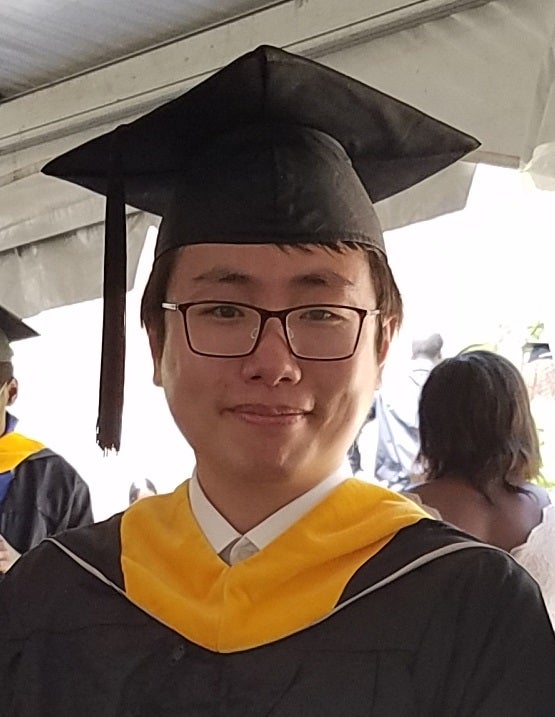Tengfei Li, (Biostatistics, MS 2017; PhD, Expected 2022)
Posted in Student Spotlight Student Stories | Tagged alumni, MS, students

Tengfei Li is a current graduate student and an alumnus of the Department of Biostatistics, Bioinformatics, and Biomathematics department at Georgetown University. He graduated with an MS in Biostatistics in 2017 and earned a BS in Statistics from East China Normal University in 2010. Tengfei is pursuing his Ph.D. in Biostatistics at Georgetown University.
How did you get interested in studying Biostatistics? What was your background before Georgetown?
My undergraduate background is in Statistics. The art of interdisciplinary cooperation inspired me a lot and guided me to the field of Biostatistics because it combines statistical methodologies and biomedical research needs.
Before Georgetown, I earned my Bachelor’s degree in Statistics at East China Normal University in 2010. Then for five years, I worked in Contract Research Organizations (CRO) as a Statistical Programmer supporting clinical trials. Specifically, I worked for 2 years at Tigermed Consulting (China’s biggest CRO) and 3 years at PAREXEL International (a Global leading CRO).
What did you love most about the MS program?
The Practicum is what I love the most, without which I may not have made my decision to apply for the PhD program. The faculty and staff are all very, very nice. I would always get helpful suggestions and instructions from them. They are more than happy to help. I am really grateful to the Biostatistics Program and the professors at Georgetown University.
The Biostatistics MS program at Georgetown…has become more and more competitive because it provides not only solid classic biostatistical knowledge, but advanced and popular techniques like machine learning in biomedical data sciences. The program also features a Practicum, an “appetizer” of research, which enables students to apply what they’ve learned into a real research project. Practicum is even more helpful when deciding whether to continue with a PhD program after MS graduation.
How do you use what you learned in our MS program now?
What I learned as a Master’s student is the basis of my current coursework in my Ph.D. program. I review and refer to the textbooks from the MS program when needed.
What advice would you give to current and prospective students?
Take every opportunity to study hard! Communicate [and get to know] your instructors and advisors. Apply for Research Assistantships and/or Internships.
[With the]… geographical advantage of Georgetown University’s location in DC, students can always find volunteer opportunities, research assistantships and internships at Lombardi Comprehensive Cancer Center (LCCC) and National Institute of Health (NIH). These are fantastic experiences to have when looking for future jobs.
Why did you want to study for a PhD in Biostats at GU? What do you hope to do after?
I started the Ph.D. program in Biostatistics at Georgetown University in 2017. I wish not only to apply biostatistical methodologies in real-life problems, but to get a deeper learning in statistical methodologies and data analysis. I hope to contribute to possible improvements. The Ph.D. program at Georgetown is quite new, however many opportunities are available to learn and work with faculty. The curriculum is attractive because it involves many fields in modern biostatistics. After completing my PhD, I want to keep all possible options open [like doing research, or working in industry or government or maybe teaching]. We will see what happens in the near future.
Anything else you’d like to add?
Georgetown University is the safest place in the DC area, [in my experience.]
What is your favorite hobby?
Hiking! There are [many] places around DC area suitable for hiking, such as Maryland’s Sugarloaf Mountain, Shenandoah National Park in Virginia, and the popular Billy Goat trail.
Updated March 2018
